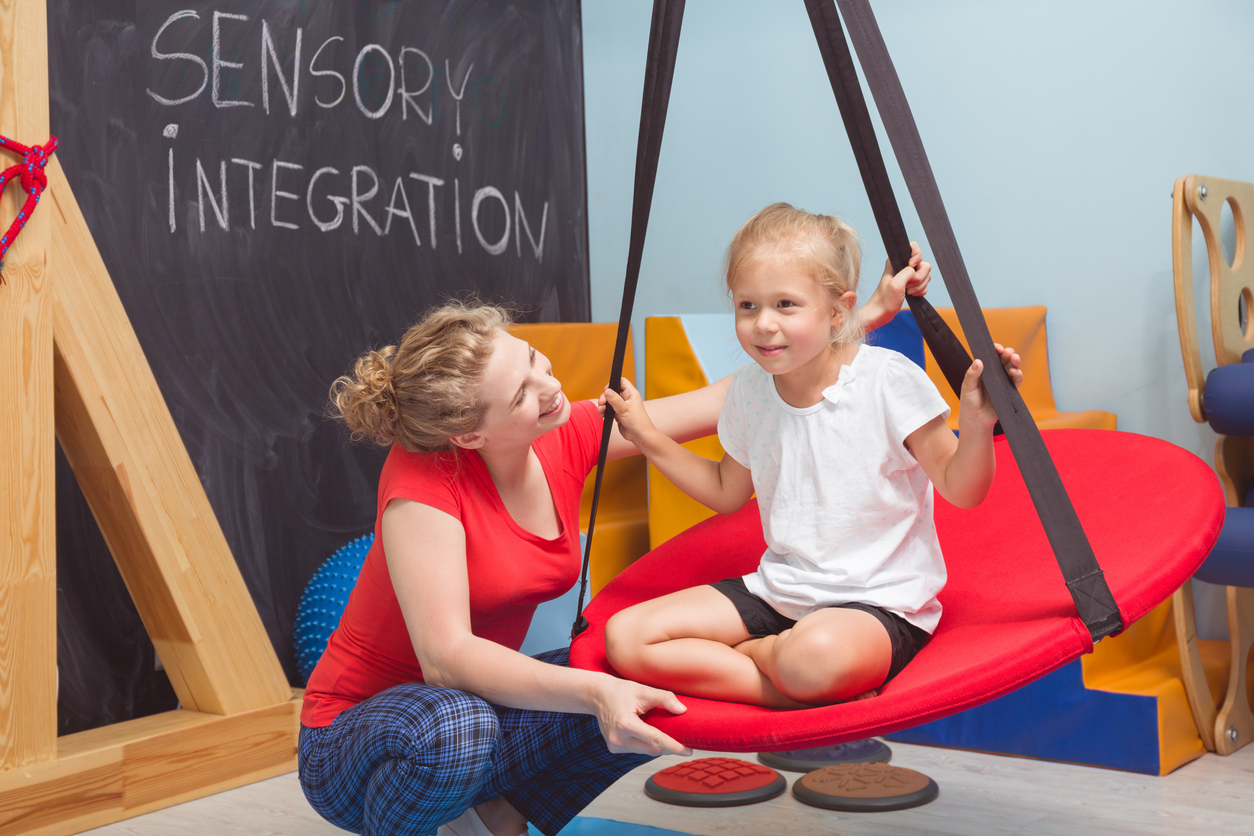
Educational Services
10/12/2020
Early Intervention, IEPs, and 504 plans
Now that school is upon us (finally!), our children are getting back into a routine. As parents we all want our children to be successful and happy, inside and outside of school. Every child has different strengths and challenges. What if your child has a challenge that affects their schooling? The Special Education process can be confusing to navigate. We hope this can provide a resource on the process of developing a plan for you child.

WHO IS ELIGIBLE FOR SERVICES?
Schooling is a right that all children are entitled to in the United States. This education starts at birth and can last until age 21. All children can attend school for free from kindergarten age until age 18 or 21. Before age 5, education is provided to children who are not meeting or are at risk for not meeting developmental milestones.
How do you know if your child needs services? First, you should discuss any developmental concerns with your child’s health care provider. They will help you determine if your child is not meeting or at risk for not meeting developmental milestones. At this point they may refer you to either the Early Intervention program or your child’s school for an evaluation. You may also self-refer to both of these organizations to have your child evaluated.
An adult involved in your child’s learning may also be a referral source. A child’s teachers or daycare providers may also express concerns and recommend an evaluation. In addition, Child Find may identify your child as needing an evaluation. Child Find is a federal program that requires schools to evaluate children with suspected disability or challenges with no cost to their family. Your child may be determined to need testing via a survey or screenings at school.
Depending on your child’s age the services your child may need will be provided by different organizations
0-5 years of age:
Education from birth until kindergarten is for children who need a service that helps them meet developmental milestones. From age 0-3 years, these services are provided by the Early Intervention program. This program can provide physical therapy, speech and language therapy, occupational therapy and developmental specialists.
From age 3-5, if your child is not meeting age appropriate developmental milestones, they may be eligible for school-based services and potentially a public school based preschool program. If your child is in Early Intervention, your Early Intervention team will help assist you in transitioning into your local public school system. If your child is not in the Early Intervention system, you will find more information below on how to have your child evaluated by your public school system.
5-21 years of age
After age 5, every child is guaranteed a public school education. Children with certain disabilities may qualify to continue that education until age 21. If your child has a challenge that affects their ability to learn in school, they may be eligible for services via school such as special education, speech and language services, physical therapy, occupational therapy, and counseling.
THE EVALUATION PROCESS

If you have concerns or your child is referred to Early Intervention or to your school, you must start the process with a formal request. If your child is under 3 years old, you will call your local Early Intervention chapter and request and evaluation. This will be provided free of charge. This will be a full evaluation including all areas of development even if you just have a singular area of concern, such a gross motor skills for example.
If your child is 3 years or older, you must send a request to the school for an evaluation. In this formal request, you need to know who to send it to (often this is the director of special education in your district), you must be specific about why you are requesting an evaluation, and you must give consent for your child to be evaluated.. Once your letter is sent, confirm that the school and correct person received the letter. Each state has rules about how long the school has to reply to your request for an evaluation.
The school rarely deny a child an evaluation, but it can happen. If this occurs, you can dispute the recommendation, have an independent evaluation done (your insurance may or may not cover this), file a written complaint, request mediation or use an advocate to help your child receive an evaluation.
After you have consented to an evaluation, your school will conduct comprehensive testing with your child. You can ask to be notified of the timing of the evaluation if it will happen while your child is in school. You may or may not be allowed to be present depending on school policy. Evaluations can include:
- Psychological testing
- psycho-educational (cognitive/achievement) testing
- interviews
- classroom observation
- functional behavior assessment
- speech and language evaluation
- an evaluation by a physical therapist
- an evaluation by an occupational therapist
These evaluations will be done by trained and credential specialist who work with children and are familiar with age appropriate behavior and skills. Depending on the testing done it may be done in a single day or over the course of a few days. By law, the team must finish the evaluation within 60 school days of the request. The school day part is important to remember!
EVALUATION MEETING
After the evaluation, there will be a meeting to go over the results of testing. As a parent or guardian, you have a right to be provided with report at least 3 days before the meeting so that you can review it. The report will include a summary of findings as well as recommendations of the findings. The meeting is attended by the school team, the evaluators, and potentially your child’s teacher. As a parent or guardian, you are also part of the team. You also get a say in making the decisions. Sometimes parents and schools are in agreement with the report and plan. Sometimes parents and schools disagree. You have a right to ask for dispute resolution.
GOALS
Sometimes the disagreements schools and parents have with educational plans are due to different goals. An educational plan will have goals based around making progress in school. The law does not require the goals to maximize your child’s potential or provide services for skills needed outside of school. The law does not require the school to address challenges that do not directly relate to attending school and accessing the curriculum.
OUTCOMES:
There are a few potential outcomes after an evaluation. After the Early Intervention evaluation, your team may recommend services such as speech therapy, physical therapy or occupational therapy, or to work with a developmental specialist. Or your child may be meeting all milestones and recommended not to receive services. This does not exclude you from requesting an evaluation in the future if you have continued concerns or there are any changes to your child’s health or development. If your child qualifies for services, they will be reevaluated every 6 months by the Early Intervention team and the plan will be updated based on the evaluation.
The school system has a few options they may offer to your child. These include developing an IEP or a 504 plan for your child. They may also recommend that your child does not need services if your child does not meet criteria. Each of these plans will be discussed below.

EDUCATIONAL PLANS AND SERVICES
INDIVIDUALIZED EDUCATION PLAN (IEP):
An Individualized Education Plan (IEP) is a written legal document. It is protected under the Individual with Disabilities Education Act (IDEA). An IEP is a map or a guide that lays out special education instruction including supports or services your child needs to make progress in school It will be tailored to your child’s needs. No two IEPs are the same! IEPs are required to provide services in the least restrictive environment. What this means is that any services that can be adequately provided in the classroom, will be provided in the classroom and any situation that requires your child to be taken out of the classroom for services will be documented in their IEP. All public schools including charter schools including charter schools. Private schools and colleges are not legally required to provide IEPs but often they will work with you to make their own services plan.
For your child to have an IEP plan they must meet 2 criteria: they must have a formal diagnosis of one of thirteen eligible disabilities AND they must have a need for services to make progress in school and learn the general curriculum. The 13 eligible disabilities include:
- autism
- vision impairment including blindness
- deaf-blindness
- deafness
- hearing impairment
- emotional disturbance
- intellectual disability
- multiple disabilities
- orthopedic impairment
- other health impairments including ADHD
- specific learning disabilities including dyslexia, dyscalculia, and dysgraphia
- speech and language impairment
- traumatic brain injury
Your child’s IEP will be reevaluated yearly at a team meeting. Every three years your child will undergo the evaluation process again so that changes can be made to their IEP. If the school wants to make changes before an evaluation period, the school must tell the family in writing. If you do not agree with these changes, the school cannot enact these changes until the dispute is resolved (this is called freezing services).
504 PLAN:
A 504 plan is a blueprint for how school can support a student and remove barriers for learning. This is a legal document protected by Section 504 of the Rehabilitation Act of 1973. A 504 can be provided for any disability (meaning ones that are not included in the 13 required for an IEP) but they must be a disability that interferes with school. The difference between a 504 plan and an IEP is that an IEP requires services from the school (such as speech therapy or special education), whereas as 504 requires and accommodation. This accommodation can include assistive technology, changes to the environment, or changes to instruction or how the curriculum is presented. A 504 plan may also include a behavioral plan. Examples of 504 plans include:
- a student with ADHD who needs movement breaks as well as preferential seating near the teacher
- a child with vision issues may require enlarged print. Rarely do 504 plans include modification to the curriculum
- a student with dyslexia using a voice to text application
- a student who need extended time to take tests
Some students who are offered or have a 504 plan have undergone an evaluation, but an evaluation is not required in order for a 504 plan to be in place. There are no set rules for what a 504 plan may entail, but schools may have guidelines for what they allow. A 504 plan is reviewed yearly. If the school wishes to change a part of the 504, they can alert you in writing but are not required to be made in writing
TITLE 1:
Another potential service your school may offer is a Title 1 reading program. This is a federal based program provided for by the Elementary and Secondary Education Act. This program provides reading support for students who are not meeting reading milestones. The program is used in schools with a high percentage of students who use the free or reduced lunch program. This is a way of identifying schools for funding, but your child does not need to qualify for the free or reduced lunch program to qualify to received Title 1 supports.
At the beginning of the school year, all students will have their reading abilities evaluated by their teacher or the reading specialists. You do not need to formally request an evaluation of your child for this service. You will need to provide consent that you agree for your child to be enrolled in the program. If your child is identifying as needing extra reading support, their Title 1 supports are provided by reading specialist who have extra training in teaching children reading strategies. These services and be in class or in a session outside of the classroom either alone or with a small group of students.
NEUROPSYCHOLOGICAL TESTING
Some children who have an IEP have undergone Neuropsychological testing (NP testing). NP testing is testing that evaluates how your child’s brain functions including thinking, behavior, and social-emotional functioning. The test is NOT done by the school. A pediatric neuropsychologist who is a specially trained license psychologist administers the testing. This is a process that parents can pursue on their own or with their provider’s referral. Your insurance may or may not cover this testing. It can be very expensive so check your coverage with your insurance plan and whether the process is necessary before arranging testing.
During NP testing you will find out how problems at home, school or with peers are related to your child’s brain functioning. It will help determine how your child learns best, why they may have behavior problems, identify and neurological or psychiatric problems, provide expectations of your child’s abilities as well as strengths and challenges. The report summaries all of these findings and often gives recommendations for home, school, and potentially medical interventions. This summary is reviewed with the psychologist who conducted the testing. It is important to send a copy to your child’s primary care provider. You can also use the testing and recommendations during team meetings with your child’s school.
Children who may need NP testing done are children with:
- any neurological disorder including spina bifida, epilepsy, neurofibromatosis
- brain injury
- developmental delays
- school problems including
- Autism Spectrum Disorder
- Attention Deficit/Hyperactivity Disorder
- Specific learning disabilities such as dyslexia
- medical issues including:
- prematurity
- chronic heart and lung problems
- genetic disorders
- lead poisoning
- inter-utero exposure to recreational drugs, alcohol, or nicotine
- children who need confirmation of a diagnosis
- children who need a record of functioning before a procedure
- children who need a record of their development
NP testing is very thorough. It is usually done of the course of 1 or 2 long days. The NP testing will start with a review of medical and school records and include a battery of tests such as:
- IQ testing
- Problem solving
- Planning and organization
- Attention and memory
- Processing speed
- Language skills
- Academic skills
- Visual perception
- Control over hand movements
- Depression and anxiety
- Aggression
- Impulsive behavior
- Social skills

The special education system is there to help your child be successful in school and to make sure they are supported in meeting developmental milestones. The process and the language can be confusing. We hope the above helped clarify how the process works and how and why services will be provided. If you are concerned about your child or need support with the process, please do not hesitate to discuss this with your primary care provider at CHC. We can help guide you through the process as well as provide information for local Neuropsychologists for NP testing. We can also help you with any medical interventions that are recommended from the NP testing summary.
Children’s Health Care of Newburyport, Massachusetts and Haverhill, Massachusetts is a pediatric healthcare practice providing care for families across the North Shore, Merrimack Valley, southern New Hampshire, and the Seacoast regions. The Children’s Health Care team includes pediatricians and pediatric nurse practitioners who provide comprehensive pediatric health care for children, including newborns, toddlers, school aged children, adolescents, and young adults. Our child-centered and family-focused approach covers preventative and urgent care, immunizations, and specialist referrals. Our services include an on-site pediatric nutritionist, special needs care coordinator, and social workers. We also have walk-in appointments available at all of our locations for acute sick visits. Please visit chcmass.com where you will find information about our pediatric doctors, nurse practitioners, as well as our hours and services.
Disclaimer: this health information is for educational purposes only. You, the reader, assume full responsibility for how you choose to use it.








